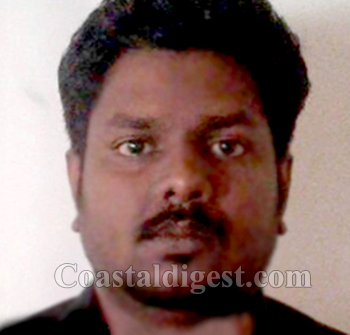The rapid spread of COVID-19 across the globe has thrown movement of lakhs of travelers off gear. This has not only impacted pleasure trips of tourists but also business travel resulting in monetary losses worth millions.
In wake of numerous advisories against travel, the travel industry, particularly the aviation sector, has also get badly impacted. Not only traffic on their once popular routes have plummeted but several have to cancel flights to destinations in China and few other South and East Asian countries to prevent becoming carrier of the contagious virus.

According to MakeMyTrip flight bookings for Southeast Asian countries have been significantly impacted but sectors in But US and Europe are only seeing a marginal dip.
More than 95,000 people in 86 countries have been infected with the virus and more than 3,200 people have died. In India so far 31 persons have tested positive for the virus.
So the situation across the globe remains grim with only positives coming from China where fresh infections of COVID-19 has reduced. But does that make travel safer? And what if you still need to travel...are there enough flights available or whether the ticket you procured protects against any unforeseen cancellations?
Here is the situation as it exists :
International flights by domestic carriers:
*Air India and Indigo that run long haul flights have cancelled their flights to Hong Kong and Shanghai and the restrictions may well run into June
*SpicejJet has cancelled Delhi Hong Kong flights till March 28
*Vistara Airlines has cancelled around 54 flights to and from Bangkok and Singapore.
*GoAir suspends flight operations to Dammam, Saudi Arabia after an advisory issued by the Saudi government to not allow non-Saudi residents to enter. It has also suspended flights to Thailand
International flights by global airlines:
*Almost all major airlines operating out of India have suspended flights to China, Korea, Iran, Italy and some to Japan.
*European and American connections provide by airlines such as Lufthansa, KLM, United Airlines from India continues
*JAL is still operating its service to Japan from India
*United, Air Canada, JetBlue, Alaska, American Airlines, Delta, Brutus Airways have suspended flights to China and reduced operations in countries with high Coronavirus infections such as Italy
Domestic airlines:
There have been no restrictions on domestic travel, so far.
What advisories have been issued by authorities that can affect your travel plan :
*From March 9 midnight all air travellers having visited or arriving from Italy and South Korea will require to submit a certificate of having tested nagative from health authorities -designated lab in their countries for Coronavirus at the departure.
*India has also suspended most visas issued to nationals of Japan, South Korea, Italy, Iran and China, as well as suspending visas of any travellers who had been to those five countries since February.
*It has now been decided that all incoming international passengers must declare their travel history to health and immigrations officials at India's airports.
*Arrivals from DGCA list of 12 countries undergo thermal screening, passengers with high temperature taken to quantantine
*Screening to be carried out at 21 airports across the country
*Regular (sticker) visa/e-visa granted to nationals of People's Republic of China, issued on or before February 5, 2020 were suspended earlier. It shall remain in force.
*Those needing to travel to India under compelling circumstances may apply for fresh visa to the nearest Indian Embassy/Consulate," the advisory said.
*An advisory had also directed passengers arriving directly or indirectly from China, South Korea, Japan, Iran, Italy, Hong Kong, Macau, Vietnam, Malaysia, Indonesia, Nepal, Thailand, Singapore and Taiwan to undergo medical screening at the port of entry
Travel Insurance :
*All Indian carriers are offering full refund or bookings to alternate destinations for flights that were booked earlier but are getting cancelled due Coronavirus scare.
*GoAir stated that people have the option of availing a full refund or utilising the booking amount for any future travel with the airline.
*In a travel advisory, Emirates has stated that those wishing to travel to Saudi Arabia will have to contact the Emirates office or their travel agent for refunds.
*Others travellers having expensive insurance cover may get full refunds by the insurance companies if they have included everything under coverage.
*But a larger number of insurers do not provide travel insurance against any pandemics outright. Moreover, any travel plan made now may not get covered for can cancellations due to Coronavirus.
 Kundapur, Apr 14: A vice principal of a private nursing and commerce college located at Koteshwara in Kundapur taluk of Udupi district has been arrested by police on charge of forcibly kissing and sexually harassing a student on the campus.
Kundapur, Apr 14: A vice principal of a private nursing and commerce college located at Koteshwara in Kundapur taluk of Udupi district has been arrested by police on charge of forcibly kissing and sexually harassing a student on the campus.




Comments
Colleges should make background checks of every appointees....normally kadapus are like that only...
Sar, Saar became Sambar
Poda Patti !!!
vice principal he he he, go to hell, if so much interested in kissing, kiss your mom,
Serial Kisser.. #3 THINK of your MOther, Sister and your wives before YOU ask such evil questions.... Do YOU like someone do to your family members like that?
before appointing any person as a principal institution must properly check their background. look at his face in any angle he doesnt look like a principal even attender job is also not suiting for him.
govt should take serious action against this issue all over, must install camera's all over the school so they are afraid of doing this things.
shame on institution,
Must chop his hand, further he should not touch any girl.
nothing wrong in that .
slap him proper punishment.. he should not enter any school or colleges,
criminal... who appointed him as a vice principal.
Add new comment